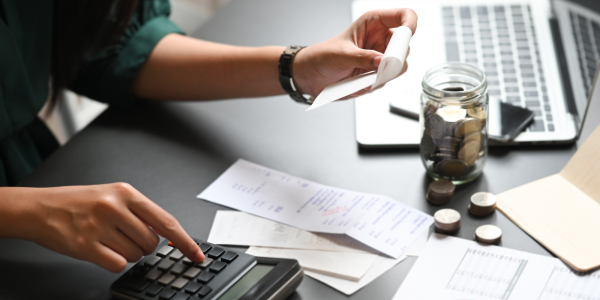Pre-trading expenses
On this page, we discuss expenses you might incur before you start trading and how you can claim tax relief for them.

Content on this page:
Starting self-employment
Pre-trade expenses are those that you pay out before you start trading. Generally, trade cannot commence until you are:
- In a position to supply the goods and services that your business will provide (for example, you have bought some stock), and
- you do provide, or offer to provide, the goods and services to your customers.
However, to get to the point of being able to start trading you are likely to have spent money on things necessary for your business, such as buying equipment, buying stock, paying rent for premises, getting insurance, and advertising. These expenses are pre-trade expenses.
Pre-trade expenses can also include items that you owned privately that you will now use in your business. There is an example showing how you can include equipment that you have pre-owned privately in your accounts and self assessment tax return in the case study (on page 33) in our self-employment guide.
Pre-trade expenses, as with other expenses, can either be revenue expenses that are deductible when working out your profit or capital expenditure. You can read about the difference between revenue and capital expenditure if you are not sure.
Claiming for pre-trading expenses
If the expenses were incurred within seven years of starting to trade, and the expenses would have been tax-deductible if you had incurred them while you were trading, then you can treat them as if they were incurred on your first day of trading. This means you can claim them in addition to the other business expenses relating to the first period of trading.
Capital costs
If you incur capital expenditure on items of plant and machinery that will be used in your trade, before trading starts, the expenses are treated as being incurred on your first day of trading. The tax treatment of these capital costs will depend if you are using the accruals basis or cash basis to prepare your accounts. If you are using the cash basis, then you may be able to claim these as a business expense. If you are using the accruals basis, you may be able to claim capital allowances.
Losses
If, after deducting pre-trading expenses your accounts show a loss, you should be able to get loss relief. We cover this on our trading losses page.
More information
Our guide to self-employment is intended to supplement the material in this section. We wrote this guide to help non-tax advisers who help low-income self-employed individuals, as well as self-employed people who want more detailed information in one place. The guide explains the less common tax rules and contains more detailed information, including a case study showing how to prepare accounts, what to include on your 2023/24 tax return, how to treat pre-trade expenses and how to use the cash basis.



